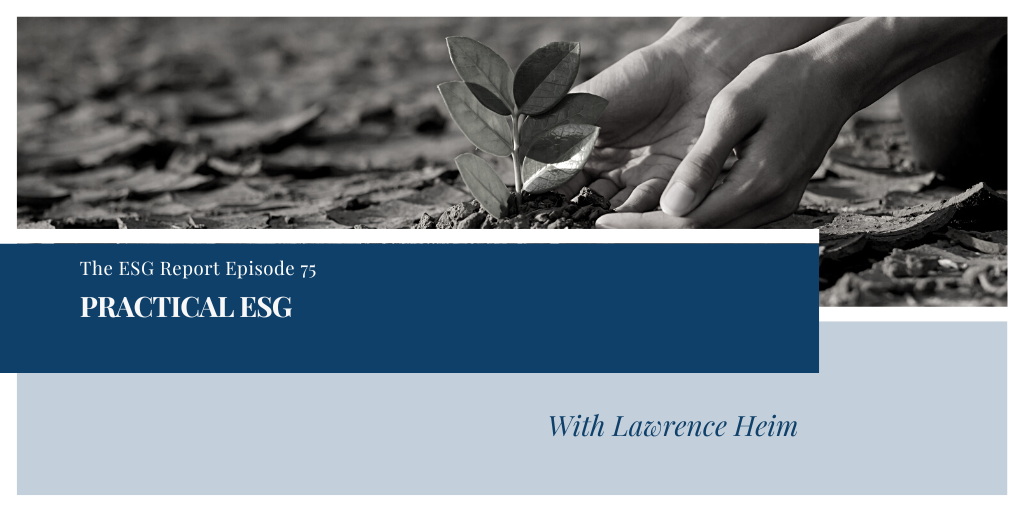
What is the role of ESG in shaping a sustainable future? Tom Fox and his special guest, Lawrence Heim, take an insightful journey into the principles and practice of ESG in this week’s show. Lawrence is a true advocate for ESG and shares his unique perspective and deep understanding of ESG and its role in shaping a sustainable future.
Lawrence Heim is the editor of Practical ESG. He is a seasoned professional in the field of environmental sustainability; with a background in environmental compliance, technical consulting, non-financial auditing, and risk management, Lawrence has been at the forefront of the industry for over 30 years. His expertise and dedication have earned him a reputation as a leading voice in the ESG community.
You’ll hear Tom and Lawrence discuss:
- Practical ESG is a resource for ESG practitioners and the corporate community, providing practical and candid content analysis, and helping them understand complex issues.
- Contributions cover a range of ESG topics, including climate issues, investor perspectives, and corporate culture management.
- Lawrence is working on a blog about the recent SEC proposed rules for climate disclosure risk.
- The ISSB (International Sustainability Standards Board) just announced the creation of a working group with multiple regulatory agencies, including the SEC. The goal of the working group is to align ISSB standards with existing national frameworks.
- Adoption of ISSB standards is not automatic; it must go through legal and administrative processes in each country. In the US, FASB (Financial Accounting Standards Board) is responsible for the convergence process.
- The SEC proposed rules have received over 6000 public comments, most of which are form letters or from concerned citizens. Stakeholders are concerned about the complexity of the proposal and need more time to evaluate it.
- There are three different categories in the proposed framework for measuring greenhouse gas emissions: Scope One (direct emissions from the company’s own equipment), Scope Two (emissions from energy purchased from third parties), and Scope Three (emissions embedded in the company’s supply chain).
- The proposed SEC framework does not specify how to collect the data or interact with suppliers. Other established frameworks, such as Conflict Minerals, can be used as a reference to think about how to approach the collection of the data and interaction with suppliers.
KEY QUOTE:
“…just because IFRS adopts a standard or develops a standard, that doesn’t mean that it is automatically established as a regulatory standard. These countries, as with anything else, individual countries have got to go through their legal and administrative processes to implement them and make them enforceable within their own boundaries, their own jurisdiction.” – Lawrence Heim
Resources





